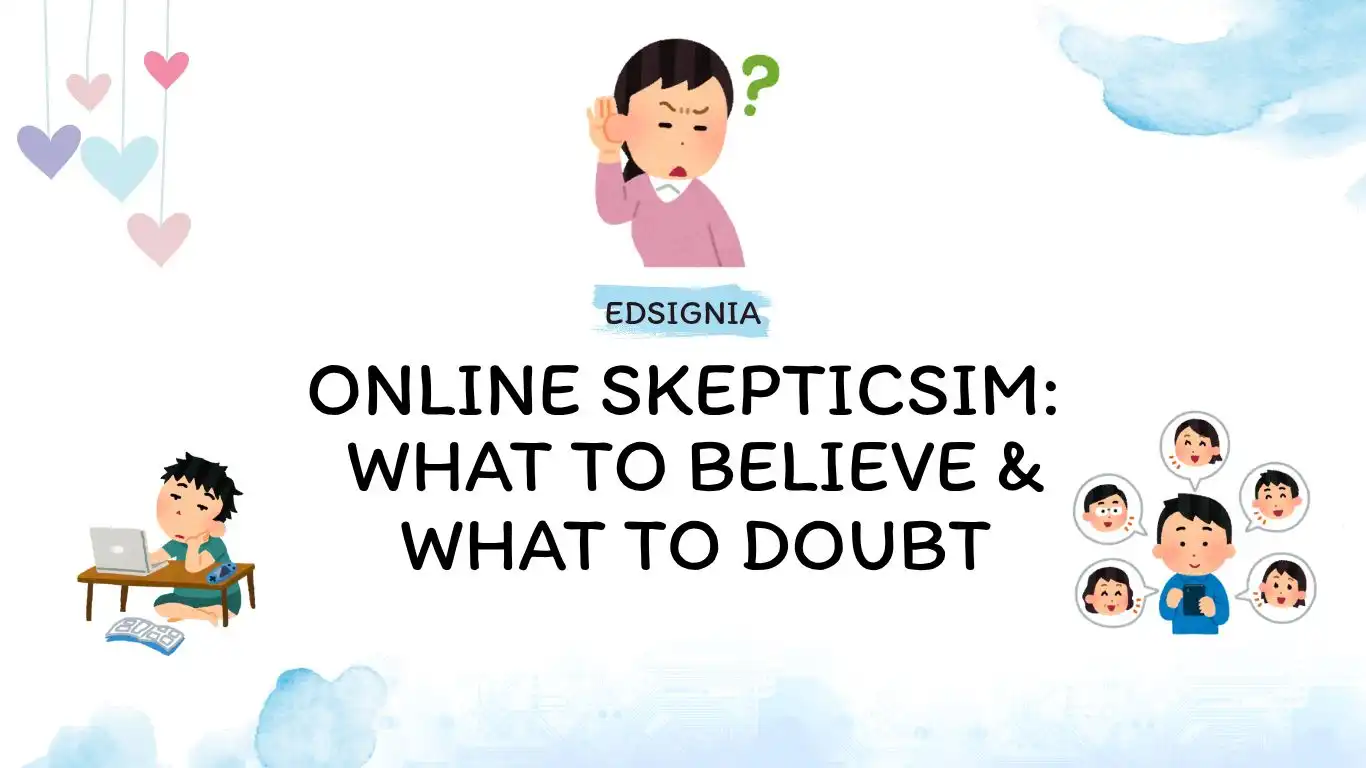Introduction
Today, we will be donning our Sherlock Holmes hat as this piece aims to take a deeper look into our daily online interactions. In the modern era, social media interactions play a pivotal role in raising awareness and bringing valuable information to us. A lot of the time, this information acts as a double edged sword if we are not vigilant in practicing reasonable levels of skepticism.
This is because, oftentimes the information presented to us is fabricated by bad actors. There can be a multitude of reasons behind this which we will try to understand in this piece. Regardless of the reason, the onus is on us to uncover the ruse and not fall prey to these deceptive tactics.
Whenever you find any information which is written in a sensationalised manner, do a double take. The source can be a forum, a social media platform, or a link from a friend. You shouldn’t assume bad intent either, as sometimes people unintentionally become pawns in the dissemination of false information.
Let us take a look at the different elements which allow rumours to spread and how we take preventative steps to not fall for it.
How Does a Rumour Spread
There are a multitude of factors which allow a rumour to spread from one ear to another on the Internet. Let’s try to understand what they are so we can stay vigilant and look out for the signs.
Presence of Bad Actors
In the modern times, we are extremely reliant on social media for gathering essential information. This practice gained momentum as we wanted our entertainment platforms to act as our news aggregator as well. Due to this, there was a rapid increase in bad actors on social media as a whole.
These bad actors come in different shades as they have carved out a distinguished presence for themselves. On one hand, we have the unreliable narrator who has a garden in their backyard for cherry picking facts and a script for speaking half-truths. On the other, we have our run-of-the-mill gurus who have synchronized their breathing with blurting out lies.
Online Echo Chambers
For many of us, the Internet is useful for sharing information and finding common grounds with people who are geographically distant. This practice is as old as the formation of the Internet itself. From the first chatroom to the reddit communities, social interaction has come a long way.
With that said, this practice is not without its faults as well. When like minded people come together, there are two possibilities. The first possibility is that the group will share insightful or humorous material and have fun among themselves. The second possibility is that the group becomes an echo chamber where hateful and false narratives are promoted as it drives higher engagement.
High Degree of Apathy
People have become more detached with each passing day. This can be attributed to numerous factors such as a rise in living expenses, lack of jobs, market saturation inhibiting innovation, and a lot more. As a result, it leads to an unprecedented rise in apathy and callousness.
When someone is worried about their own life circumstances looking glum, they become distant and cold. It leads to the individual becoming vulnerable and prone to manipulation by bad actors. As online forums are an easy escape for one’s own life issues, it becomes a gateway for the spread of rumours as well as hateful rhetoric by malicious agents.
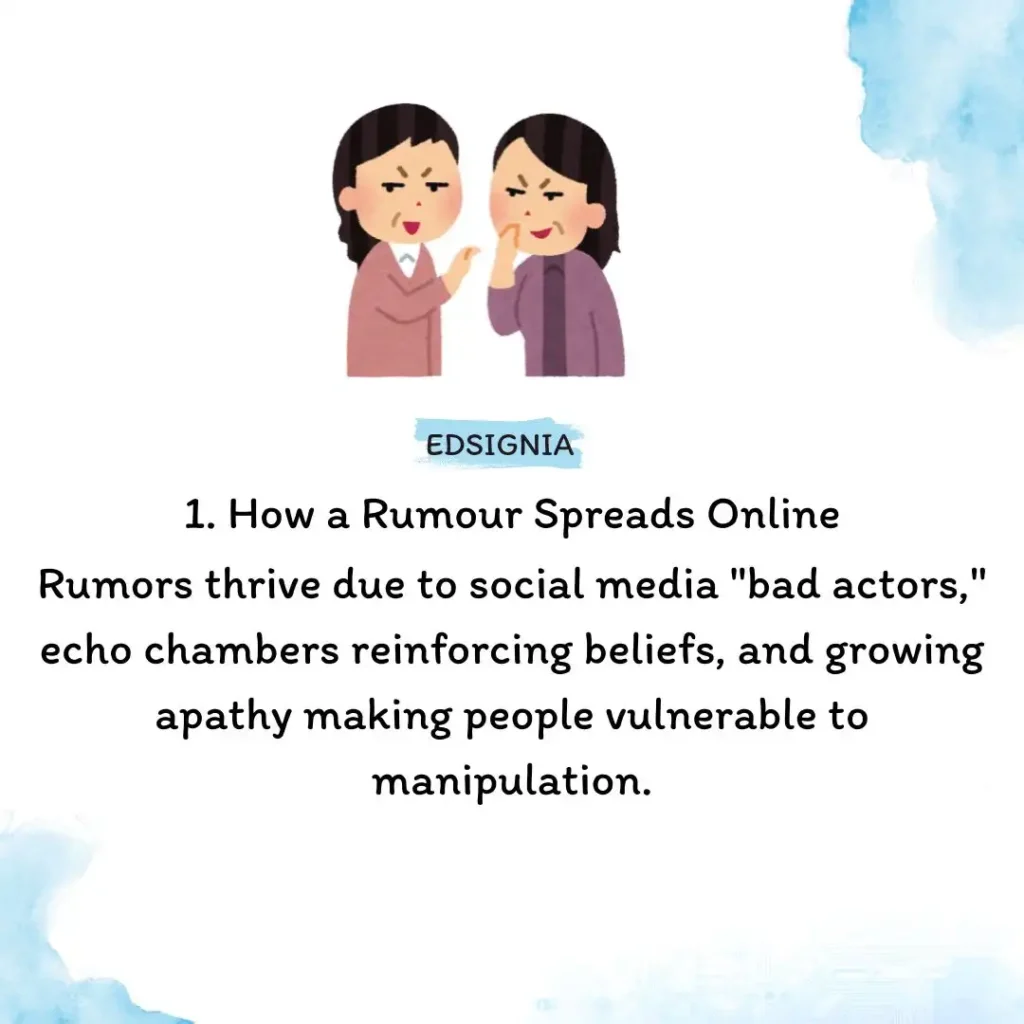
Pitfalls of Believing in Rumours
There are a ton of consequences of believing in everything we read online, especially exorbitant claim from unverified sources. Some of these cons are as follows.
Emotional Outbursts
Let’s picture a mundane scenario which you may or may not have noticed in your daily lives. You come across an information or a news which is blatantly false but everyone believes it without much inquiry. Since you know the information to be wrong, you give your two cents on the issue and the whole group shuns you immediately with choice words.
This results in you losing your mind and becoming agitated due to the sheer lack of critical thinking displayed by others. Sometimes, the dissent to your opinion may come from outsiders while at other times, it may come from your family and friends. It can lead to you being emotionally overwhelmed and being upset for a few hours to even days depending on the situation.
Unnecessary Distraction
After being enraged by a couple of distasteful remarks, we take it as a challenge to prove the other side wrong. It is the beginning of a back-and-forth argument which slowly devolves into a mud slinging contest.This results in the loss of valuable time and energy by both the parties involved.
The distraction could have been avoided but the emotionally charged words spell a completely different story. Due to this, we spent our valuable time and energy in a draining discussion with no positive outcome for anyone. Our time and resources could be better spent in leisure activities or working on a personal goal we keep pushing to the side.
Rise in Discontentment
There is a saying which states that, “Hurt people hurt people” and it perfectly captures why there’s a rising discord among people. When someone is going through a rough patch in their life, there seems to be no recourse in sight. During such times, it is quite easy to fall prey to misinformation or an escape route without taking a look at the whole picture.
High rate of dissatisfaction with one’s own life due to adverse circumstances is a major cause of concern. It allows us to fall prey to misinformation at times, and in some cases can also lead one to fall for a conspiracy theory. None of those two circumstances are ideal for anyone and growing pains make these things difficult to avoid.
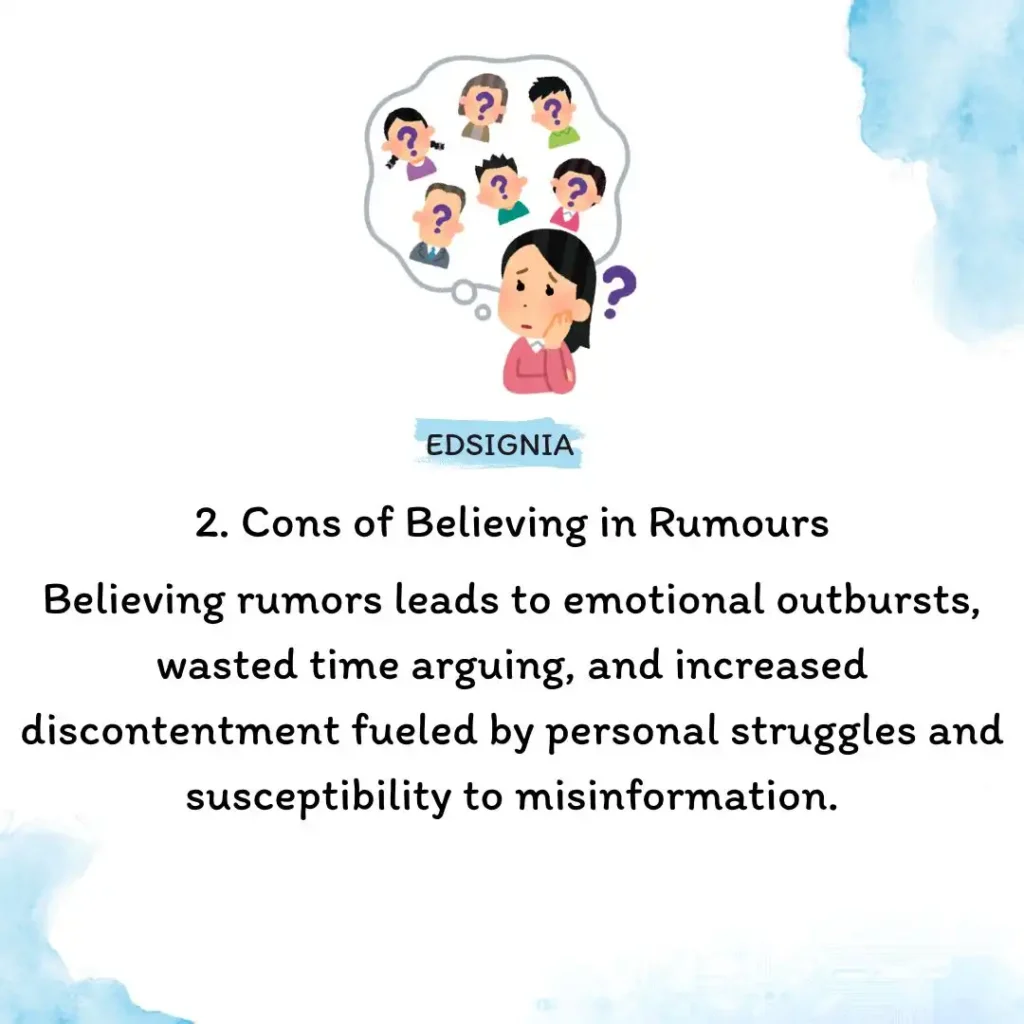
Practicing Online Skepticism
Being reasonable and performing balanced levels of skepticism online can be advantageous for a lot of us. First, let us try to understand the process which can allow us to make this habit a mainstay in our lives.
Developing a Vetting Process
The best way for anyone to avoid falling prey to a scam, false news, a doctored image/video, is to develop a vetting process of your own. It acts as a filter which keeps you out of harm’s way and protects your inner peace of mind. The exact process can vary from individual to individual but the key components remain the same.
The first thing you can do is to rely on yourself for finding information about important local or global events. Aside from this, try to rely on the people in your life to provide you with actual news. If you come across an unverifiable claim on the internet, keep asking questions from the original poster until sources are provided.
Verifying the Information
The next stage after collecting sources is to check for the accuracy of the presented data. Oftentimes, the information presented in the heading is much different from the actual article itself. Someone with a lot of free time or an ulterior motive can choose to omit crucial details in an attempt to drive higher engagement.
In such a scenario, it becomes crucial to do our due diligence before trusting anything on the internet. It has also been observed that a lot of the times, the one posting partial or incorrect information is not doing it for wrong reasons. They were misled by an emotionally charged piece of information and acted in good spirits without checking for more details.
Checking for Disparities
A lot of the time, a close friend may share something without checking for irregularities. This is completely normal and we have all been there. There are a lot of things going on in our lives and when something we see reinforces our belief system, we choose to share it.
Unfortunately, this innocent habit of ours can allow wrong information to spread due to the way sharing works in a group setting. The best way to ensure it doesn’t happen is to thoroughly examine any media sent to us. It is highly likely that an image, quotation or a video may not accurately represent the whole situation.
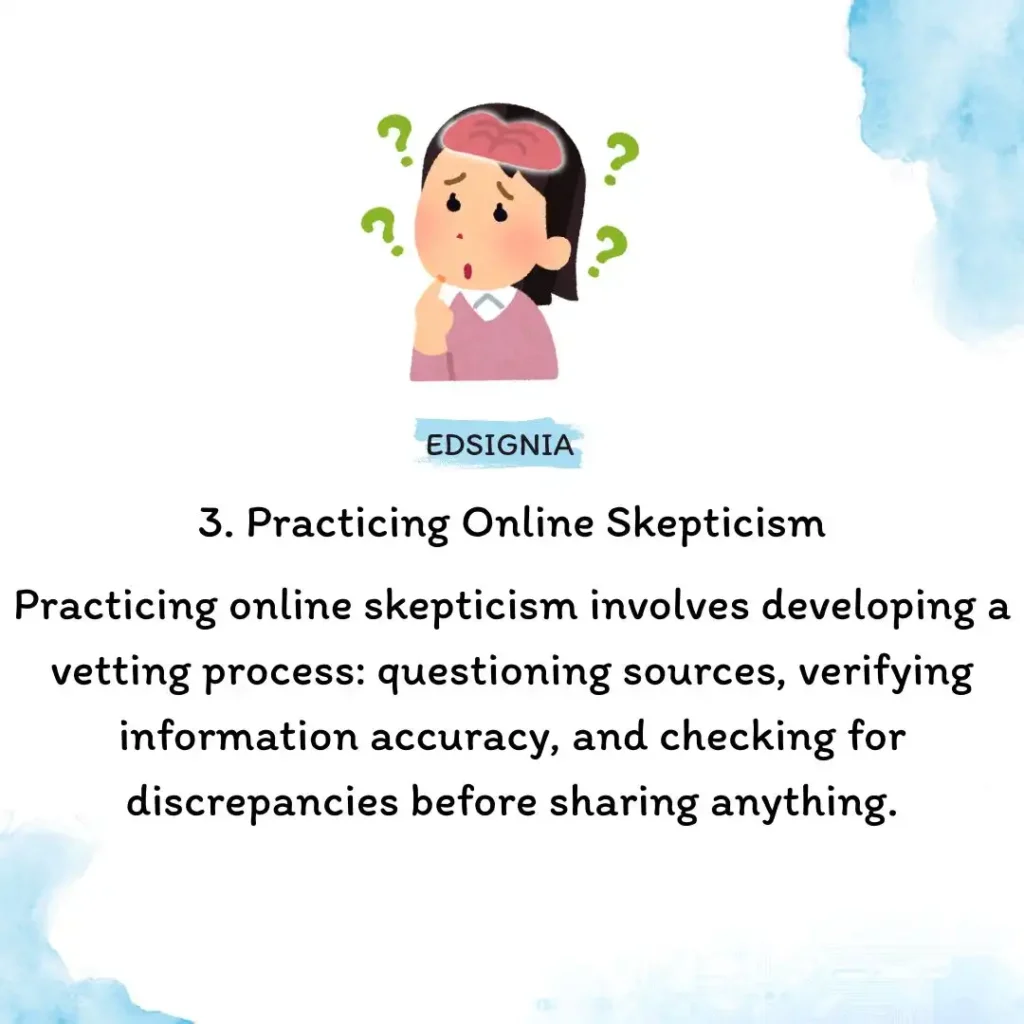
Challenges of Practicing Online Skepticism
Like everything, there are pros and cons of every good thing. This is true for the habit of “Online Skepticism” as well. Let us look at some major hurdles which can impair our habit of being skeptical in an online setting.
Formation of a New Habit
The biggest obstacle in practicing online skepticism is the habit formation part. It is extremely difficult to form a new habit. In this case, forming a habit of becoming skeptical in our online interactions will not go down with a lot of people.
This is because cross checking every detail online, keeping our emotions in check, and not engaging in a discussion without acquiring enough information about it is an uphill climb. A lot of our behaviour patterns are reactive and we do what we have been doing for some time. Suddenly, turning a new leaf and looking at every information presented to us in a broad sense is quite exhausting.
Time Constraints
Aside from the development of a new habit altogether, the next obstacle is oftentimes the dealbreaker for a lot of people. It is the lack of time in our daily lives. Whether you are a working professional, a student, or a retiree, there is always something on the plate.
Everyone is facing a time crunch in this day and age due to a variety of reasons. Whether it is an assignment to complete, a deadline to meet, or getting your family affairs in order, time crunch is a constant. In the absence of time, formation of a new habit stops being a challenge and becomes impractical.
Let us take a look at a “What If” situation now. What if someone has both time to spare and has no trouble in sticking with a habit? What is stopping them from adapting the habit of practicing online skepticism in their daily interactions? Why would someone not make time for ascertaining whether someone is lying on the internet or not?
As you must have figured out by now, there is a simple and common answer to all these questions. Navigating numerous sources and checking whether the information presented is true is a mammoth task. For some, it may be a necessary problem to solve whereas for others, it becomes an unnecessary inconvenience in their daily life.
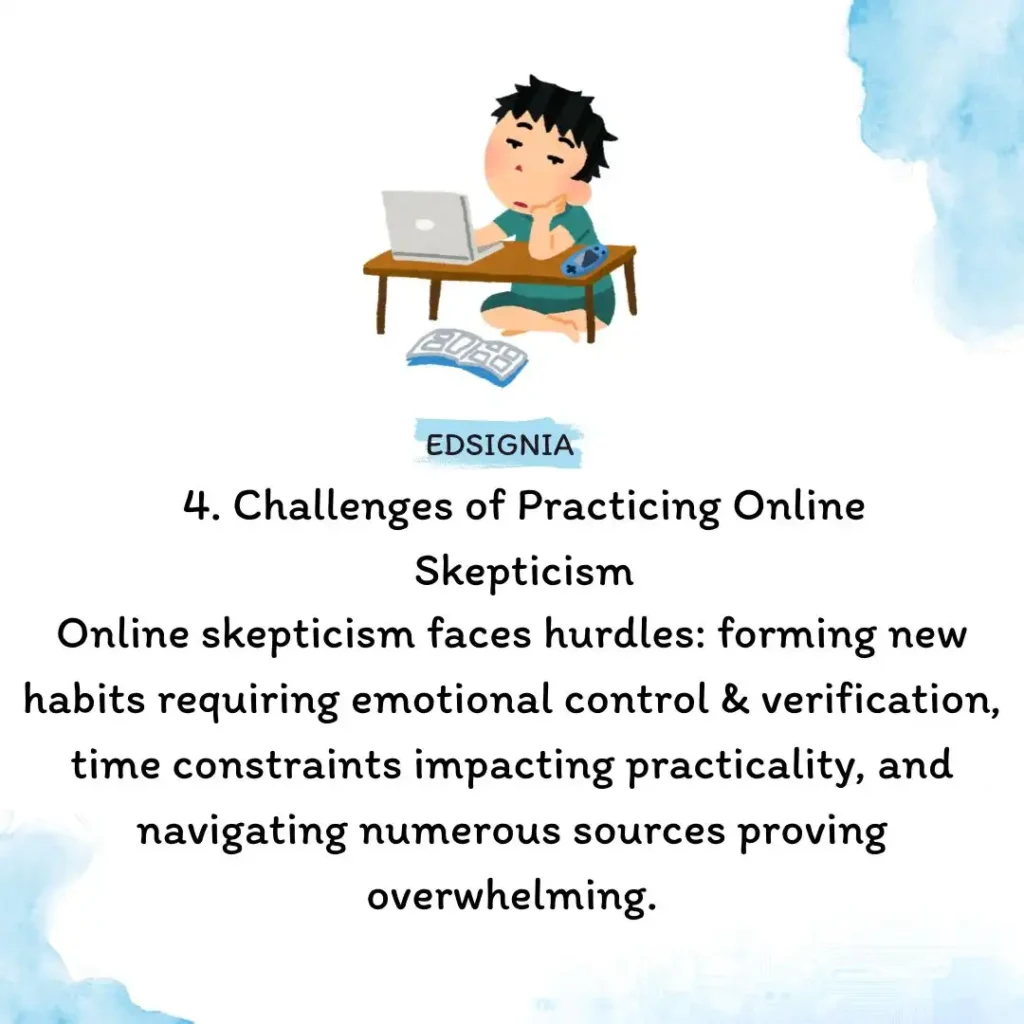
Benefits of Practicing Online Skepticism
The pros of being skeptical of bold claims and bad actors on the internet weighs a lot more than its cons. Let’s observe some key benefits which we can yield by being more aware in our online interactions.
Protects your Peace of Mind
In a lot of situations, we unwillingly engage in a back and forth with internet strangers on an issue which no-one is willing to budge. Although the interaction is completely virtual, it possesses the ability to cross over in our life as well. Such a scenario results in bad mood, misplaced anger, and increased irritability.
For such reasons, it becomes essential to not let the negativity, pessimism, misinformation, and uncivil behaviour by online strangers get to you. The best course of action is to avoid bad faith arguments while not taking any claims from unverified sources at face value. Online skepticism is not a daunting habit but a necessary choice which helps us to maintain our peace of mind on the Internet.
Raises Critical Evaluation Skills
The best advantage of being skeptical of unverifiable claims on the internet is that it gives way for being a critical thinker. Having better critical evaluation skills can come in handy in difficult moments. It helps us rationalize our thoughts and also enables us to see things clearly.
Critical thinking is a multidimensional approach which can be raised through the habit of online skepticism. Being aware of things and not falling prey to bad actors is a reward in itself. However, the effort one undertakes in this quest raises their awareness levels while simultaneously enhancing their analysis and evaluation skills.
Increased Awareness Levels
Verifying information and checking for sources has an added benefit too. When we have to cross examine different sources and steer clear of bad actors, we have to do a lot of reading. This reading is done by skimming over different sources.
The process of using multiple sources to gather information allows us to gather something which may have been left out from one source. This act in itself allows us to know more about different topics and help us learn about something new everyday. Accumulation of knowledge help us become more aware and allows us to become introspective and open minded.
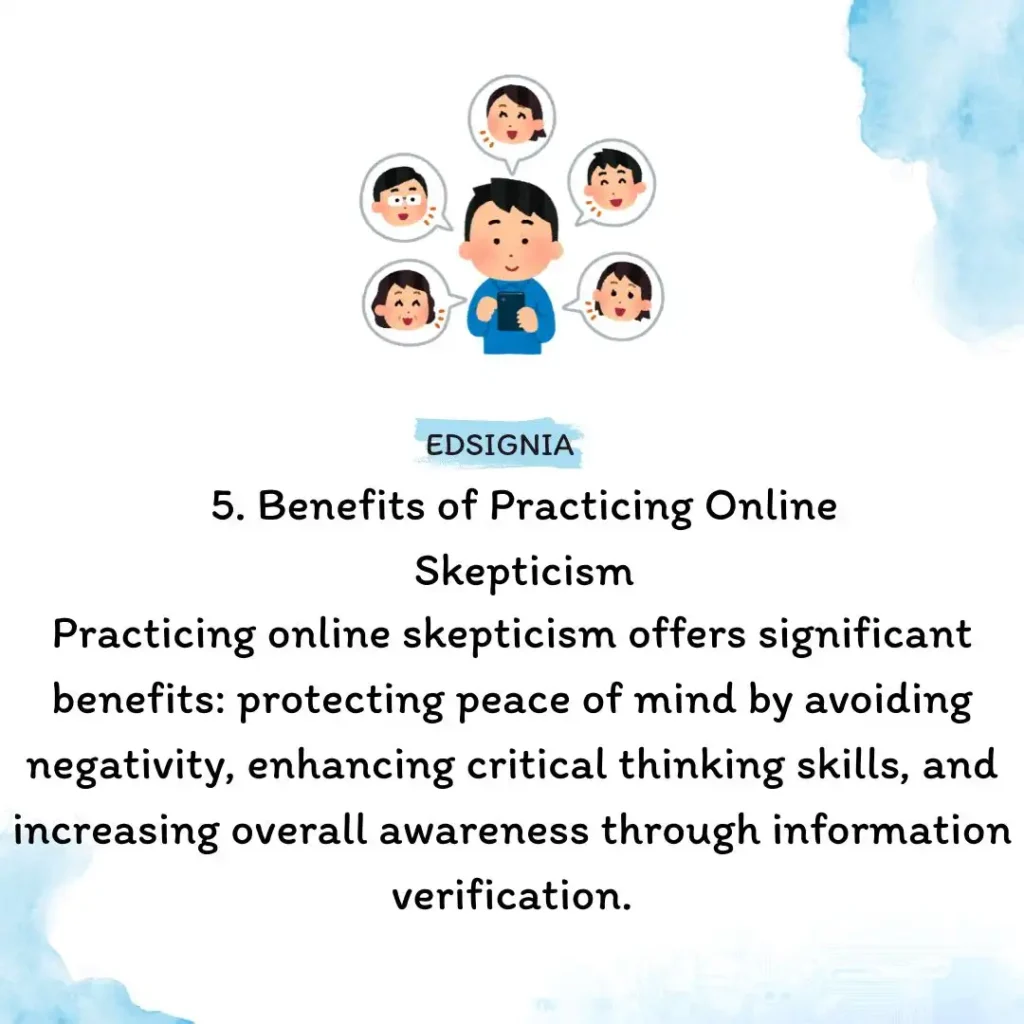
Conclusion
In this article, we looked at the foundational tenets of online skepticism. I hope this piece makes even the slightest positive change in your life. In the age of AI, it has become increasingly difficult to navigate the myriad of misinformation and bad actors on the web.
Numerous bad actors all over the internet take the help of technology to fabricate stories, make false claims, and use audio-visual trickery for generating more engagement. Unfortunately, this engagement comes at the cost of actual useful information and leads to unrest in our online social lives as well. Sometimes, these feelings spill over in our daily life and disrupt our entire routine.
Writing this piece was my attempt to make online skepticism a mainstream idea and a major part of our lives. What we can believe and what we should trust is a question which has the depth of a lake itself. This piece is an endeavor to answer this question by throwing a small pebble into the lake.
Do let us know if you have any questions or suggestions for us by visiting our “Contact” page. If you found this article useful, you may also like a similar article on “Debating Skills” and “Paradox of Tolerance”. Hoping to interact with you soon with another insightful discussion ahead.

